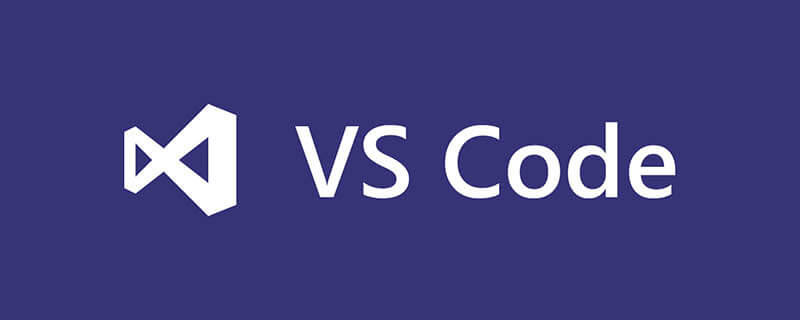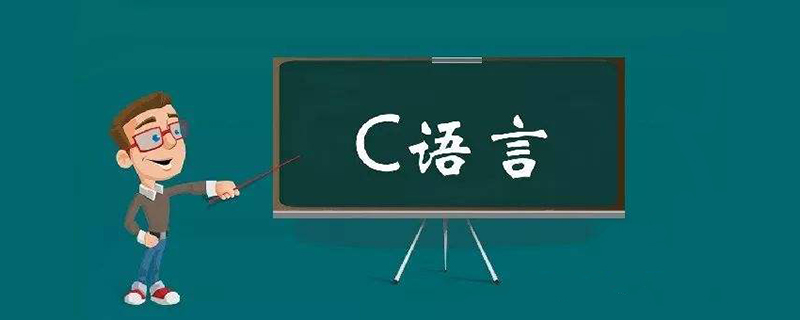 Backend Development
Backend Development C++
C++ In-depth analysis of the implementation and application of C language standard library functions
In-depth analysis of the implementation and application of C language standard library functions
Detailed explanation of C language function library: In-depth understanding of the implementation and application of standard library functions
Introduction:
In C language programming, function library is essential Tools, which provide us with encapsulation of various commonly used functions, can simplify our programming process and improve efficiency. The standard library function is one of the most commonly used function libraries and contains the definition and implementation of a series of commonly used functions. This article will introduce the implementation principles and common application scenarios of standard library functions in detail, and deepen understanding through specific code examples.
1. Classification and characteristics of standard library functions
Standard library functions can be divided into the following categories:
- String processing functions: such as strlen, strcpy, strcat etc.;
- Input and output functions: such as printf, scanf, fopen, fclose, etc.;
- Memory management functions: such as malloc, free, memcmp, etc.;
- Mathematical functions: such as abs, sqrt, sin, cos, etc.
The characteristics of the standard library functions are as follows:
- Highly encapsulated: The standard library functions encapsulate the underlying implementation details, making it easier for programmers to call functions to complete specific tasks. tasks without paying attention to the underlying implementation.
- Portability: The interface of standard library functions is consistent across different compilers and operating systems, which means we can use the same code in different environments.
- Richness: The standard library functions cover many commonly used functions and can meet most programming needs.
2. Implementation Principle of Standard Library Functions
The implementation of standard library functions is generally divided into two ways: through link library calls and direct source code calls.
- Link library call:
The source code of the standard library function is compiled into an object file and packaged into a link library for developers to use. When using it, we only need to introduce the corresponding header file, and then link the corresponding library file during compilation. The advantage of this method is that it is easy to use, but the disadvantage is that if we want to deeply understand the implementation principle of the function, we need to view the source code of the library file, which is often inconvenient. - Direct source code call:
The source code of some standard library functions is open. We can directly introduce these source codes into our projects and call them, so that we can deeply understand and modify them. Function implementation. The advantage of this method is that it is highly flexible and can be customized and modified. The disadvantage is that it is relatively complicated.
3. Examples of application scenarios of standard library functions
The following takes several commonly used standard library functions as examples to introduce their usage scenarios and specific code examples.
- strlen function:
This function is used to calculate the length of a null-terminated string and has a wide range of application scenarios.
For example, we can use the strlen function to implement a custom string processing function, such as implementing a function to determine whether a string is a palindrome string.
#include <stdio.h>
#include <string.h>
int isPalindrome(char str[]) {
int len = strlen(str);
int start = 0, end = len - 1;
while (start < end) {
if (str[start] != str[end]) {
return 0;
}
start++;
end--;
}
return 1;
}
int main() {
char str[100];
printf("请输入一个字符串:");
gets(str);
if (isPalindrome(str)) {
printf("%s是回文串。
", str);
} else {
printf("%s不是回文串。
", str);
}
return 0;
}- printf function:
This function is used to output formatted strings and is widely used.
For example, we can use the printf function to implement a function that prints the elements of an array in a specified format.
#include <stdio.h>
void printArray(int arr[], int size) {
printf("[");
for (int i = 0; i < size; i++) {
if (i > 0) {
printf(", ");
}
printf("%d", arr[i]);
}
printf("]");
}
int main() {
int arr[] = {1, 2, 3, 4, 5};
int size = sizeof(arr) / sizeof(arr[0]);
printf("数组的元素为:");
printArray(arr, size);
return 0;
}- malloc function:
This function is used to dynamically allocate memory space and is used in scenarios where memory needs to be dynamically managed during operation.
For example, we can use the malloc function to implement a function for merging two ordered arrays.
#include <stdio.h>
#include <stdlib.h>
int* mergeArrays(int arr1[], int size1, int arr2[], int size2) {
int* mergedArray = (int*)malloc((size1 + size2) * sizeof(int));
int i = 0, j = 0, k = 0;
while (i < size1 && j < size2) {
if (arr1[i] < arr2[j]) {
mergedArray[k++] = arr1[i++];
} else {
mergedArray[k++] = arr2[j++];
}
}
while (i < size1) {
mergedArray[k++] = arr1[i++];
}
while (j < size2) {
mergedArray[k++] = arr2[j++];
}
return mergedArray;
}
int main() {
int arr1[] = {1, 3, 5};
int arr2[] = {2, 4, 6};
int size1 = sizeof(arr1) / sizeof(arr1[0]);
int size2 = sizeof(arr2) / sizeof(arr2[0]);
int* mergedArray = mergeArrays(arr1, size1, arr2, size2);
printf("合并后的数组为:");
for (int i = 0; i < size1 + size2; i++) {
printf("%d ", mergedArray[i]);
}
free(mergedArray);
return 0;
}Summary:
This article provides a detailed introduction to the standard library functions, including classification and characteristics, implementation principles and application scenarios, and deepens the understanding through specific code examples. understand. Standard library functions are indispensable tools for us in C language programming. Proficiency in their use and implementation principles is of great significance to improving programming efficiency and in-depth understanding of the underlying mechanism. I hope this article can be helpful to the majority of C language programmers.
The above is the detailed content of In-depth analysis of the implementation and application of C language standard library functions. For more information, please follow other related articles on the PHP Chinese website!
 (超详细)VScode中配置C语言环境的方法Dec 05, 2022 pm 07:05 PM
(超详细)VScode中配置C语言环境的方法Dec 05, 2022 pm 07:05 PMVScode中怎么配置C语言环境?下面本篇文章给大家介绍一下VScode配置C语言环境的方法(超详细),希望对大家有所帮助!
 c语言中node是什么意思Jul 06, 2022 pm 03:51 PM
c语言中node是什么意思Jul 06, 2022 pm 03:51 PM在C语言中,node是用于定义链表结点的名称,通常在数据结构中用作结点的类型名,语法为“struct Node{...};”;结构和类在定义出名称以后,直接用该名称就可以定义对象,C语言中还存在“Node * a”和“Node* &a”。
 c语言怎么将数字转换成字符串Jan 04, 2023 pm 03:20 PM
c语言怎么将数字转换成字符串Jan 04, 2023 pm 03:20 PMc语言将数字转换成字符串的方法:1、ascii码操作,在原数字的基础上加“0x30”,语法“数字+0x30”,会存储数字对应的字符ascii码;2、使用itoa(),可以把整型数转换成字符串,语法“itoa(number1,string,数字);”;3、使用sprintf(),可以能够根据指定的需求,格式化内容,存储至指针指向的字符串。
 c语言开根号运算符是什么Mar 06, 2023 pm 02:39 PM
c语言开根号运算符是什么Mar 06, 2023 pm 02:39 PM在c语言中,没有开根号运算符,开根号使用的是内置函数“sqrt()”,使用语法“sqrt(数值x)”;例如“sqrt(4)”,就是对4进行平方根运算,结果为2。sqrt()是c语言内置的开根号运算函数,其运算结果是函数变量的算术平方根;该函数既不能运算负数值,也不能输出虚数结果。
 c语言数组如何初始化Jan 04, 2023 pm 03:36 PM
c语言数组如何初始化Jan 04, 2023 pm 03:36 PMC语言数组初始化的三种方式:1、在定义时直接赋值,语法“数据类型 arrayName[index] = {值};”;2、利用for循环初始化,语法“for (int i=0;i<3;i++) {arr[i] = i;}”;3、使用memset()函数初始化,语法“memset(arr, 0, sizeof(int) * 3)”。
 c语言合法标识符的要求是什么Aug 27, 2020 pm 01:47 PM
c语言合法标识符的要求是什么Aug 27, 2020 pm 01:47 PMc语言合法标识符的要求是:1、标识符只能由字母(A~Z, a~z)、数字(0~9)和下划线(_)组成;2、第一个字符必须是字母或下划线,不能是数字;3、标识符中的大小写字母是有区别的,代表不同含义;4、标识符不能是关键字。
 c语言中源文件编译后生成什么文件Nov 23, 2022 pm 07:44 PM
c语言中源文件编译后生成什么文件Nov 23, 2022 pm 07:44 PMc语言编译后生成“.OBJ”的二进制文件(目标文件)。在C语言中,源程序(.c文件)经过编译程序编译之后,会生成一个后缀为“.OBJ”的二进制文件(称为目标文件);最后还要由称为“连接程序”(Link)的软件,把此“.OBJ”文件与c语言提供的各种库函数连接在一起,生成一个后缀“.EXE”的可执行文件。
 c语言中*p和p的区别是什么Nov 29, 2022 pm 06:03 PM
c语言中*p和p的区别是什么Nov 29, 2022 pm 06:03 PM区别:1、表示的含义不同,“*p”表示此指针指向的内存地址中存放的内容,“p”表示一个指针变量的名字,指此指针变量所指向的内存地址。2、输出的格式不同,“*p”输出的一般是一个和指针类型一致的变量或者常量,“p”输出的是一个16进制数, 输出一个指针的地址。3、功能不同,“*p”是让程序去那个地址取出数据,“p”用于存放的是地址。


Hot AI Tools

Undresser.AI Undress
AI-powered app for creating realistic nude photos

AI Clothes Remover
Online AI tool for removing clothes from photos.

Undress AI Tool
Undress images for free

Clothoff.io
AI clothes remover

AI Hentai Generator
Generate AI Hentai for free.

Hot Article

Hot Tools

VSCode Windows 64-bit Download
A free and powerful IDE editor launched by Microsoft

PhpStorm Mac version
The latest (2018.2.1) professional PHP integrated development tool

DVWA
Damn Vulnerable Web App (DVWA) is a PHP/MySQL web application that is very vulnerable. Its main goals are to be an aid for security professionals to test their skills and tools in a legal environment, to help web developers better understand the process of securing web applications, and to help teachers/students teach/learn in a classroom environment Web application security. The goal of DVWA is to practice some of the most common web vulnerabilities through a simple and straightforward interface, with varying degrees of difficulty. Please note that this software

Zend Studio 13.0.1
Powerful PHP integrated development environment

EditPlus Chinese cracked version
Small size, syntax highlighting, does not support code prompt function





